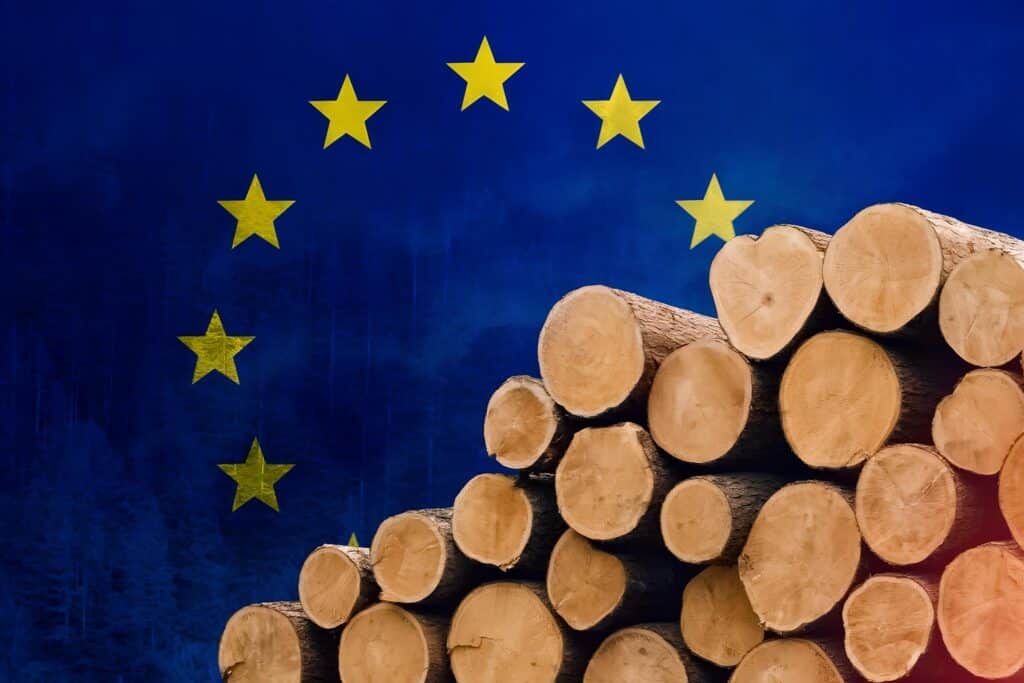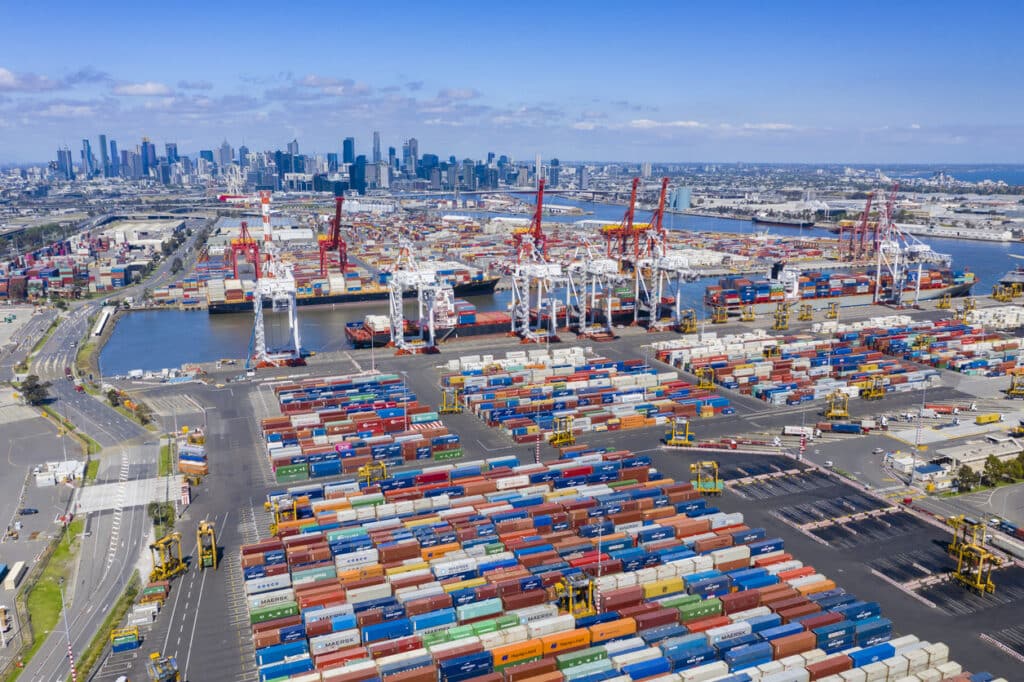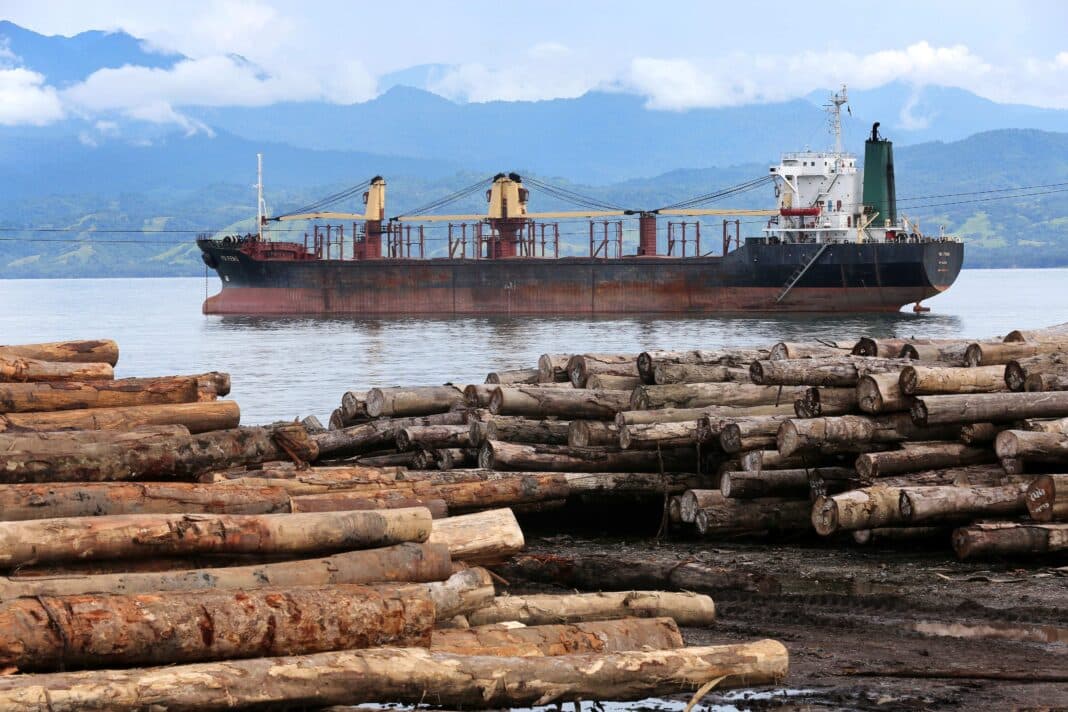Up to 10% of timber entering Australia’s ports could be illegal, with the Australian Government now strengthening regulations to make them “fit-for-purpose” amid a global crackdown on illegal timber.
It comes as the EU – through its landmark EUDR, the US, New Zealand, Japan, China, Vietnam, and Indonesia have all introduced legislation, with varying degrees of success, addressing a trade costing governments billions in revenue and connected to drug trafficking and corruption.
Illegal logging has a devastating impact on the climate, nature, and people. Not only does it cost developing countries billions in lost revenue, but the trade is estimated to reduce the price of legal timber by 7-16%.

Last month, Wood Central reported that the Australian Department of Agriculture, Fisheries and Forestry finished reviewing the Illegal Logging Prohibition Regulation 2012, involving multiple foreign governments, 11 non-government associations, 20 industry associations, and significant timber importers and brokers.
That process led to the Australian House of Representatives debating a new bill, the Illegal Logging Prohibition Amendment (Strengthening Measures to Prevent Illegal Timber Trade) Bill 2024, which will boost powers to seize, enforce, and publically disclose non-compliances at the port.
Moved by Kirsty McBain, Australia’s Minister for Regional Development, Local Government and Territories, “As global awareness of deforestation and consumer demand for sustainable timber products have increased, Australia has welcomed regulatory approaches introduced by many countries to combat illegal timber harvesting and associated trade.”
“This wider action globally has helped produce new approaches that Australia can adopt to augment our laws,” Minister McBain said, adding that the new bill “will help modernise and strengthen the act, to protect harvested timber and timer products better and support a sustainable and legal timber trade into the future.”
As part of the reforms, Australia is investing $4.4 million in DNA testing, which will help establish the world’s largest forest identification database, the WFID.

According to Murray Watt, Minister for Agriculture, Fisheries and Forestry, the Bill, if passed, is critical to better protecting the Australian market from illegally harvested timber and timber products and supporting sustainable and legal timber trade, now and into the future.
“Australia’s illegal logging laws support a sustainable forestry industry and reduce the risk of it being undercut by illegal products,” according to Minister Watt, who added, “Australia was among the first countries in the world to introduce laws targeting illegal timber and trade in 2012.”
Minister Watt said that Australian timber producers and environmental groups are working to push for “cutting-edge” tools and techniques to improve enforcement.
Diana Hallam, CEO of the peak body for Australian Forest Products, said that “illegal timber not only undermines the environmental sustainability of the forest products industry, it also undermines our domestic biosecurity protections, creating a heightened risk of potentially devastating pests and diseases that can devastate local industry.”
Before adding that “this updated legislation is particularly timely…off the back of the native forestry industry closures in Victoria and Western Australia, we have seen a considerable increase in the volume of imported hardwoods and the proper checks, enforcement and penalties must be in place if there’s any doubt as to the source.

According to Natalie Reynolds, the General Manager of the Australian Timber Importers Federation, once the legislation is approved, the next step is to work together in good faith to meet due diligence requirements for all domestic producers and importers.
Minister Watt said illegal logging was a complex global problem, adding that “Australia is not immune, with trade in low-priced illegally sourced timber undermining supply chains, business decisions, industry profitability, investment, and jobs in the Australian economy.”
“Modernising Australia’s laws will help make Australia an even less attractive destination for illegally sourced timber and protect our international reputation as a sustainable and legally sourced supplier.”
- For more information about the role that illegal logging plays in driving a thriving “timber trafficking” economy, click on Wood Central’s special feature.






